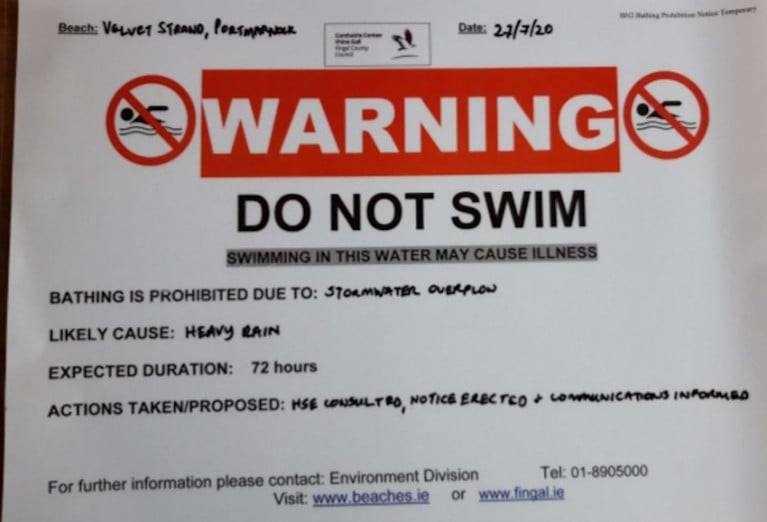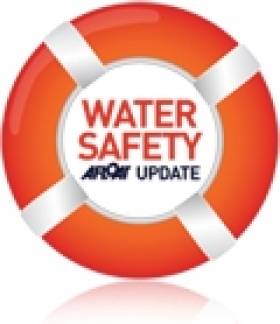Displaying items by tag: Fingal County Council
Fingal County Council Removes Small Boats from Skerries Harbour Railings
Fingal County Council, in accordance with the provisions of its bye-laws, has removed a number of small boats which were illegally chained to the railings on Harbour Road in Skerries.
Owners can make arrangements to retrieve their boats on payment of a fine of €150 to Fingal County Council by emailing the Harbour Master at [email protected]. The council says it is prepared to waive this €150 fine for owners who retrieve their boats on or before Monday 23 October.
Any boat not retrieved by Monday 6 November, whether or not the €150 fine has been paid, will be destroyed and the council shall not be liable for any loss to the owner.
Anyone claiming ownership of any particular boat will be required to present to the Harbour Master photographic ID in the form or a driver’s licence, passport or public services card, as well as proof of address in the form of a utility bill, bank statement, letter from an official public body, etc.
Copies of this documentation will be retained by Fingal County Council and may be produced at a later date to An Garda Síochána in the event of any dispute over ownership of a boat being claimed.
‘Do Not Swim’ Notice Issued For Portmarnock’s Velvet Strand
Fingal Council Council has issued a ‘do not swim’ notice for Velvet Strand in Portmarnock after a wastewater overflow this morning, Monday 27 July.
The overflow at a nearby pumping station followed heavy rainfall and resulted in a direct discharge at the popular North Co Dublin beach.
A scheduled sample was due to be taken today but the beach will remain closed to swimming until at least this Thursday 30 July.
Do not Swim Notice Velvet Strand for 72 hours
— FingalCountyCouncil (@Fingalcoco) July 27, 2020
An overflow at a pumping station occurred this morning following heavy rainfall which resulted in a direct discharge to Velvet Strand, Portmarnock.
Please see Prohibition Do not Swim Notice. A scheduled sample is due to be taken today pic.twitter.com/zhq5aiPTOe
Clonshaugh Chosen For Fingal Sewage 'Super Plant'
#Sewage - Clonshaugh in North Dublin has been chosen as the location for the city's new water treatment 'super plant' which has long faced objections from local campaigners.
As The Irish Times reports, a meeting of Fingal County Council yesterday afternoon (10 June) saw the site near Dublin Airport chosen over Annsbrook and Newtowncorduff, both near the coastal towns of Rush and Lusk.
Part of the plan includes the construction of a 26km orbital sewer to collect waste from parts of Dublin, Kildare and Meath, and an outfall pipeline that will eject waste near Ireland's Eye.
Project managers have described the Clonshaugh option as "ecologically and environmentally better" than the alternatives, but campaigners such as Reclaim Fingal chair Brian Hosford argue that "the potential for environmental disaster [with a single large plant] is enormous".
In January 2012, Minister for Health James Reilly raised his own concerns that any potential malfunction at the large-scale facility - second-only in scale to the new water treatment plant at Ringsend - could see huge amounts of raw sewage pumped into the Irish Sea.
Meanwhile, The Irish Times also spoke to a farming family who may lose as many as 40 acres if the 'super plant' gets the go-ahead adjacent to their land.
"I would have to change my whole system of farming if this goes ahead," said 77-year-old PJ Jones, who added that his biggest concern was the smell.
This Friday Last Day for 2012 Fingal Lifeguard Applicants
#WATER SAFETY - This coming Friday 30 March is the closing date for applications for Fingal County Council beach lifeguards for the 2012 summer season.
Lifeguard cover will be provided on Fingal beaches on weekdays and weekends 11am to 7pm from 2 July till the last week of August, depending on weather and staff levels.
Beaches and bathing places scheduled to be guarded this summer include Balbriggan (front beach), Skerries South, Loughskinny, Rush North and South Shores, Portrane (Tower Bay and The Brook), Donabate, Malahide, Portmarnock, Sutton (Burrow Road) and Howth (Claremount).
Applicants must be not less than 17 years of age on 1 May 2012. Application forms are available to download HERE.
Health Minister Speaks Out Against Fingal Sewerage 'Super Plant'
#NEWS UPDATE - The Minister for Health has raised concerns over a new water treatment 'super plant' planned for Fingal, amid fears that a malfunction could see huge amounts of raw sewerage pumped into the Irish Sea.
As reported in The Irish Times, Dr James Reilly echoed worries expressed by his north Dublin constituents and members of community group Reclaim Fingal Alliance, noting that the people of Skerries, Loughshinny and Rush are particularly "worried about the effects of the outfall pipe in their area".
The minister said that none of the nine sites being considered by Fingal County Council and Greater Dublin Drainage was suitable for sewerage treatment, and that any waste should be treated to "advanced levels" to make the outfall as clean as possible, thereby avoiding adverse impact on shellfish beds.
As many as 10,000 letters of objection have been lodged against the plan by campaigners including local farmers and environmentalists.
The Irish Times has more on the story HERE.
Lifeguards Wanted in Fingal
Fingal County Council is currently welcoming applications for weekend and weekday lifeguards for the 2001 summer season.
Anyone aged at least 17 years on 1 May 2011 is eligible to apply.
Application forms are available from Fingal County Council, Operations Department 2nd Floor, Grove Road, Blanchardstown, Dublin 15 or from the reception desk at County Hall in Swords.
Alternatively forms can be downloaded from www.fingalcoco.ie or from Irish Water Safety's website at www.iws.ie.
The closing date for applications is 4.30pm on Friday 8 April.

































































